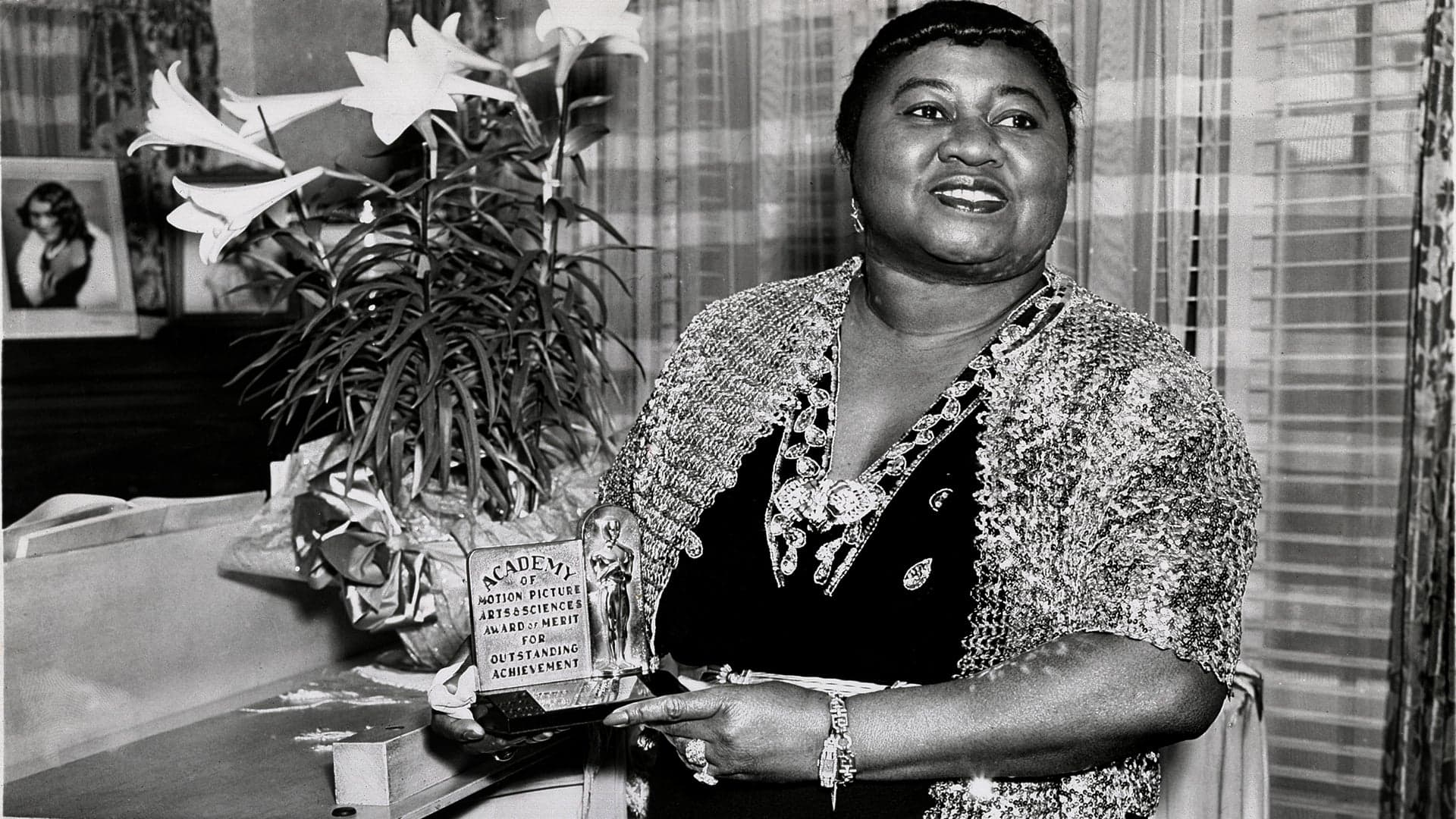On February 29, 1940, Gone with the Wind is honored with eight Oscars by the American Academy of Motion Picture Arts and Sciences. An epic Southern romance set during the hard times of the Civil War, the movie swept the prestigious Best Picture, Director, Screenplay, Cinematography, Art Direction, Film Editing, and Actress categories. However, the most momentous award that night undoubtedly went to Hattie McDaniel for her portrayal of “Mammy,” a housemaid and former enslaved woman. McDaniel, who won the Best Supporting Actress Academy Award, was the first African American actress or actor ever to be honored with an Oscar.
Born in Wichita, Kansas, in 1895, McDaniel demonstrated her talents as a singer and actress while growing up in Denver, Colorado. She left school while a teenager to become a performer in several traveling minstrel groups and in 1924 became one of the first African American women to sing on U.S. radio. With the onset of the Great Depression, she was forced to take work as a ladies’ washroom attendant in a Milwaukee club. The club, which hired only white performers, eventually made an exception and let her sing, and she performed there for a year before setting her sights on Hollywood.
In Los Angeles, she won a small role on a local radio show called The Optimistic Do-Nuts and before long had become the program’s main attraction. In 1932, she made her film debut as a Southern house servant in The Golden West. In American movies at the time, African American actors and actresses were generally limited to house servant roles, and McDaniel apparently embraced this stereotype, playing the role of maid or cook in nearly 40 films in the 1930s. Responding to criticism by groups such as the National Association for the Advancement of Colored People (NAACP) that she was perpetuating stereotypes, McDaniel responded that she would rather play a maid on the screen than be one in real life. Furthermore, she often subverted the stereotype by turning her maids into sassy, independent-minded characters who sometimes made white audiences shift uncomfortably in their seats.
Her most famous role was as Mammy in the 1939 film Gone with the Wind. Directed by Victor Fleming and based on the best-selling Margaret Mitchell novel of the same name, the movie remains the highest-grossing movie of all time when inflation is taken into account. Although she was honored with an Oscar, liberal African Americans sharply criticized McDaniel for accepting a role in which her character, a former slave, spoke nostalgically about the Old South.
McDaniel’s film career declined in the late 1940s, and in 1947 she returned to radio as the star of the nationally broadcast The Beulah Show. In the program, she again portrayed an effervescent Southern maid but in a markedly un-stereotypical manner that won praise from the NAACP. In 1951, while filming the first episodes of a television version of the popular show, she had a heart attack. She recovered to do a few more radio programs but in 1952 died of breast cancer at the age of 57.
